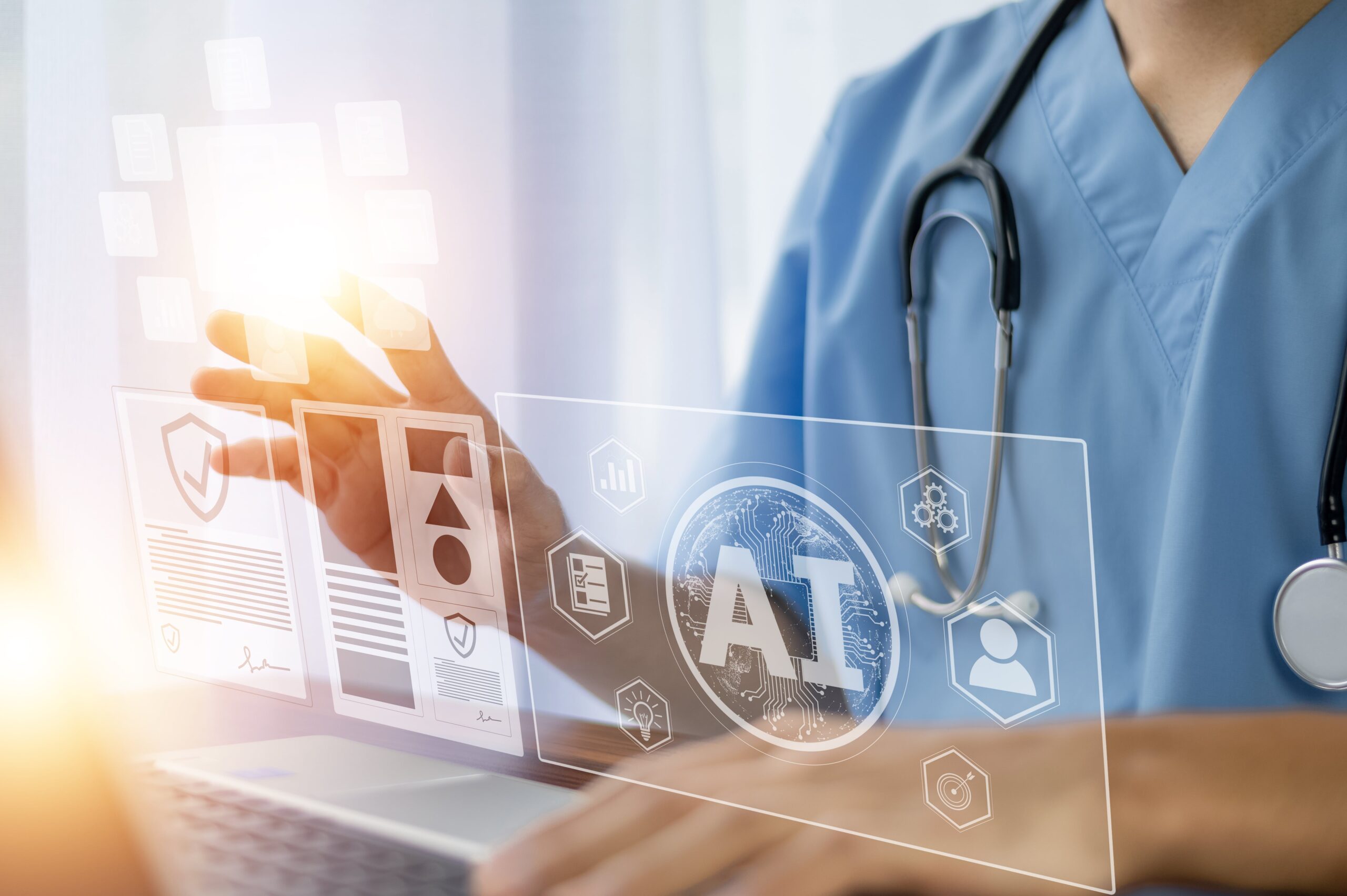Are we reaching a point where there aren’t enough humans in healthcare? The signs suggest we’re close. Post-pandemic workforce shortages, high nursing burnout and attrition, and an aging population are all overextending the nationwide network of healthcare workers. Since replacements or reinforcements aren’t always forthcoming, the industry needs to take a hard look at how to maintain quality care outcomes. AI might be part of the solution.
Not too surprisingly, artificial intelligence in healthcare has long been discussed as a way to improve inpatient care and preventative medicine. In the past, we’ve highlighted predictions and use cases for enhanced medical diagnoses, preventative healthcare, and even better healthcare payments.
Now, improvements in large language models are creating even more opportunities to upgrade care quality without exhausting clinicians or risking HIPAA noncompliance. Here is how using generative AI in healthcare can enhance productivity, accuracy, and employee retention.
AI-Powered Digital Assistants
Accurate and complete notetaking used to be one of the most time-consuming elements of a clinician’s day. Even with the efficiency of EHR systems, healthcare professionals still spent considerable time recording information. A 2017 study published in The Annals of Family Medicine found clinicians spent 5.9 hours of each 11.4-hour workday in their EHR (44.2% on clerical and administrative tasks). Now, generative AI can reduce that data-logging overload and give clinicians time back in their days.
We’re seeing tools like Oracle Clinical Digital Assistant and other gen-AI health platforms promise to automate notetaking. Generative AI platforms allow clinicians to record a patient’s information and responses in real-time, turning streaming audio into structured notes through natural language processing and language learning model techniques. Many of these tools promise to prompt clinicians on follow-up questions to ask as they’re conducting intake or examinations.
After patient visits, clinicians can review and update the auto-populated notes. To make these systems even more efficient, healthcare professionals can offer additional context or fix errors by typing or voice editing the AI observations before submitting the validated updates to the official EHR systems. As a result, clinicians not only save time and boost productivity, but they keep inaccuracies to a minimum.
Patient Communication
What is care without comprehension? Language barriers can prevent patients from communicating their ailments, understanding treatment regimens, or voicing their concerns. Only when clinicians and patients can exchange words to convey the nuances of care, pharmaceuticals, therapeutics, and treatment plans will there be equity in quality care.
What about existing translation methods? Medical interpreters can communicate complex ideas in people’s native tongues, but offering language support can be a pricy option. Though translating tools aren’t new, AI can make real-time audio translation a reality.
Neural networks and machine learning algorithms are being trained on a multitude of languages to help to convey critical messages in the moment. As the technology evolves, clinicians will be able interact in live scenarios across languages, building relationships and asking follow-up questions that get to the bottom of patients’ concerns.
One area where there is already a chance to do this is with discharge summaries and instructions. Generative AI can provide patients with detailed directions and warnings in their native language, increasing the likelihood that treatment will be a success and patients will maintain trust in your care facilities.
Quick Response to IT and HR Questions
The logistics of patient care are not the only activities that take up time. Which clinician hasn’t struggled to find resolutions for IT glitches, confusing workflows, scheduling problems, or critical HR questions? It’s often these secondary tasks that disrupt the productivity of healthcare professionals, distracting them from their work and diminishing morale. The right generative AI platforms can streamline these processes.
In both cases, healthcare organizations can use text-based generative AI applications to answer some of the common or simple questions that clinicians are asking. The natural language processing capabilities that underscore this technology can decipher the nuances of each healthcare professional’s questions, producing a personalized response that resolves issues faster.
For example, if a doctor is acclimating to a new telemedicine platform and is struggling with launching an appointment, they can query and troubleshoot with an AI-powered support tool to clarify the confusion and connect with their patient. There’s also an opportunity to more easily work out scheduling issues. Though artificial intelligence is already helping healthcare providers to create schedules that align with availability and preferences, text-based AI components can field questions and automatically solve problems.
As a result, healthcare workers will spend less time resolving administrative or operational issues and can gain greater trust in leadership.
Generative AI Use Cases Start with Great Data
Even with all this potential, it’s important to remember generative AI is a tool, not a replacement for healthcare professionals. With quality-of-care or life-or-death decisions on the line, these tools always need a human in the loop to counteract biases, correct algorithm mistakes, and maintain compliance with HIPAA and other regulations.
Striking the right balance between human input and generative AI in healthcare also requires a foundation of quality data governance. If these tools are trained on data that is inaccurate, incomplete, or biased, they might create problems for your organization. Building the right groundwork early on empowers businesses like yours to enhance performance, efficiency, and engagement to find that perfect balance between people and generative AI programs.
In the end, making the most of the humans you have goes a long way towards exceptional care.
Looking for ways to unlock generative AI in your healthcare organization? w3r Consulting can build the data foundation you need for AI results.
Learn about our healthcare solutions
Related Articles
How Artificial Intelligence in Healthcare Will Be a Game Changer


